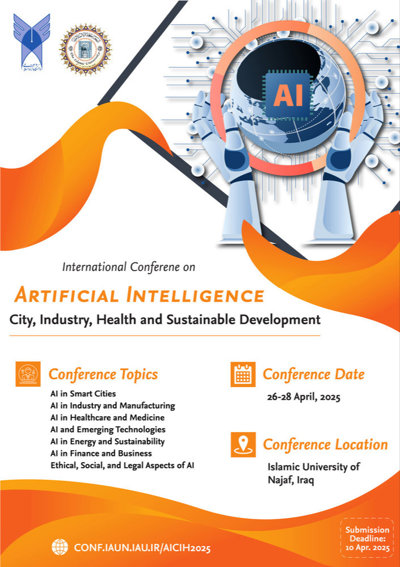0% Complete

نویسندگان :
کلمات کلیدی :
چکیده :
لیست مقالات بایگانی شده
Saiedeh Mehrabani-Najafabadi - Hossein Shahinzadeh - Hamed Nafisi - Shohreh Azani - Ehsan Etemadnia - Ali Karimi
احسان قربانی - مهدی آمون
Fatemeh Alimoradi - Zahra Alimoradi - S. Mohammadali Zanjani - Ghazanfar Shahgholian
احمد که کشان - میثم علیمردانی فر - زهرا قوی دست - فرید کعبی
Mohamad Hosein Ghojavand - Hamid Rastegari
سید امید رادی - مهرداد فارسی مدان
Hadi Mahmoudi - Masoud Raei Dehqi - Alireza Ansari Mehiyari
مصطفی مکی شهرضایی - عباس چترائی


